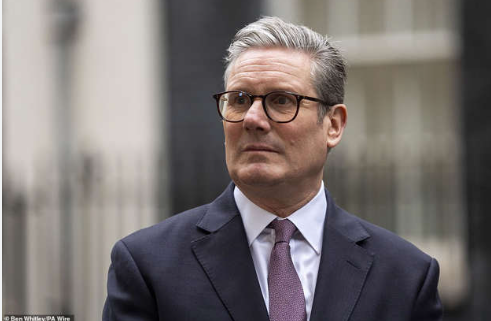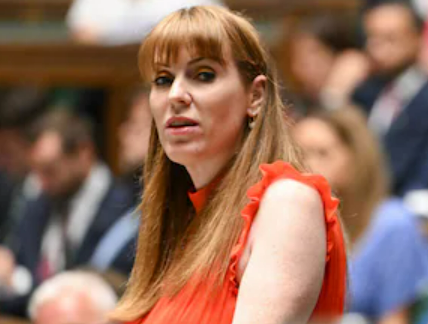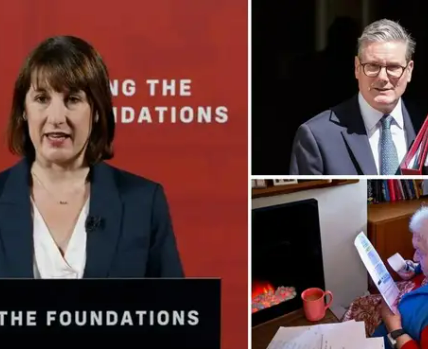
The outlook for the British economy has taken ‘a decisive turn for the worse’ since the Budget, according to business. In just the latest sign of the potential damage done by the Chancellor’s £40billion tax bombshell, a survey by the Confederation of British Industry (CBI) found private sector firms believe activity will fall in the next three months.

This marks the first time this year that expectations have been negative and comes as business reels from a punishing Budget that included a £25billion rise in national insurance contributions (NICs) paid by employers. Critics argue the increase breached Labour ’s manifesto pledge not to raise national insurance. The hike came alongside an inflation-busting rise in the minimum wage, higher business rates bills and a new package of rights for workers that could cost the private sector more than £5billion a year.

‘As we head into 2025 expectations for growth have taken a decisive turn for the worse,’ said Alpesh Paleja, interim deputy chief Economist at the CBI. ‘Our surveys suggest that anticipated activity was already weakening heading into the October Budget and the Chancellor’s announcements have left businesses with even more tough choices to make.’ The CBI warned that companies are now planning to cut jobs as they grapple with higher costs and a ‘tepid outlook’ for the economy.

Rachel Reeves (pictured) has been warned that the national insurance raid alongside the increase in the minimum wage will prove particularly damaging. Despite previously branding national insurance as a ‘jobs tax’ that makes it more expensive to hire new staff, she raised the levy paid by employers from 13.8 per cent to 15 per cent and cut the threshold at which firms start paying it from £9,100 to £5,000 a year.

Mr Paleja said: ‘News that firms are planning to reduce headcount is a concern, with hiring intentions at their weakest since the tail-end of the Covid 19 pandemic. This could be an early sign of the impact of higher labour costs from the upcoming rise in employer NICs, and the uprating in the National Living Wage.’ The Chancellor has faced a ferocious backlash from business over the Budget with more than 80 major retailers – including Marks & Spencer, Tesco and Currys – warning the £7billion hit facing the industry will result in store closures, job losses and higher prices.

Ms Reeves sought to defend her Budget at the CBI conference last week and promised there would be no more tax increases. ‘I’m really clear, I’m not coming back with more borrowing or more taxes,’ she told business leaders. Her comments came after CBI chairman Rupert Soames, the grandson of Winston Churchill, said business has been ‘milked’ by the Budget.

But the Chancellor’s pledge not to raise taxes any further appeared to fall apart when first business secretary Jonathan Reynolds and then the Prime Minister refused to repeat it. Andrew Goodwin, chief UK economist at Oxford Economics, said the Chancellor ‘may struggle to keep the promise’. Meanwhile a survey of more than 200 business leaders has revealed deep concern about the Government’s ability to deliver growth. A survey of London Chamber of Commerce and Industry (LCCI) members found that 81 per cent were not confident that ministers would listen to their concerns.

In addition, 77 per cent were not confident that Labour will deliver on its commitment to economic growth. Three quarters (78 per cent) of those surveyed said that employer National Insurance hikes announced in the Budget would negatively affect their firms. Almost half (45 per cent) predicted a hiring freeze and 47 per cent expected lower staff pay in the coming years.

Karim Fatehi, Chief Executive of LCCI, said: ‘This snap survey has confirmed our worst fears; the business community views the combined package of increased employer National Insurance Contributions, cuts to business rates relief and the Employment Rights Bill as a serious threat to their operations over the coming years. ‘It also shows that London businesses are fast losing faith in the Government’s economic growth strategy. Having weathered a cost-of-living crisis, soaring inflation, higher borrowing costs, and trade tensions, businesses need the operating conditions conducive to economic growth, rather than measures that curtail their ability to invest in their business, hire new people and train their staff.’

Want more stories like this from the Daily Mail? Hit the follow button above for more of the news you need.




